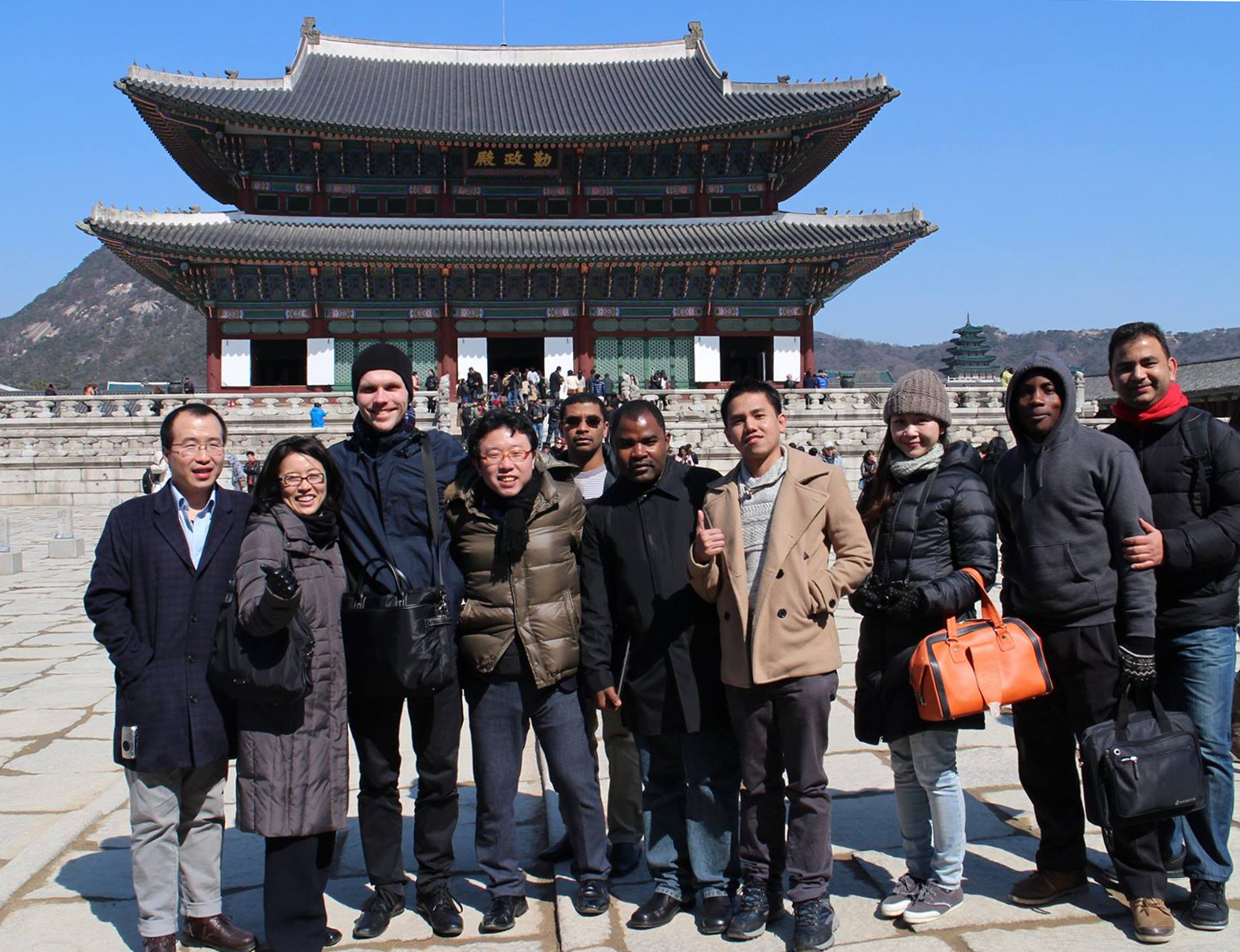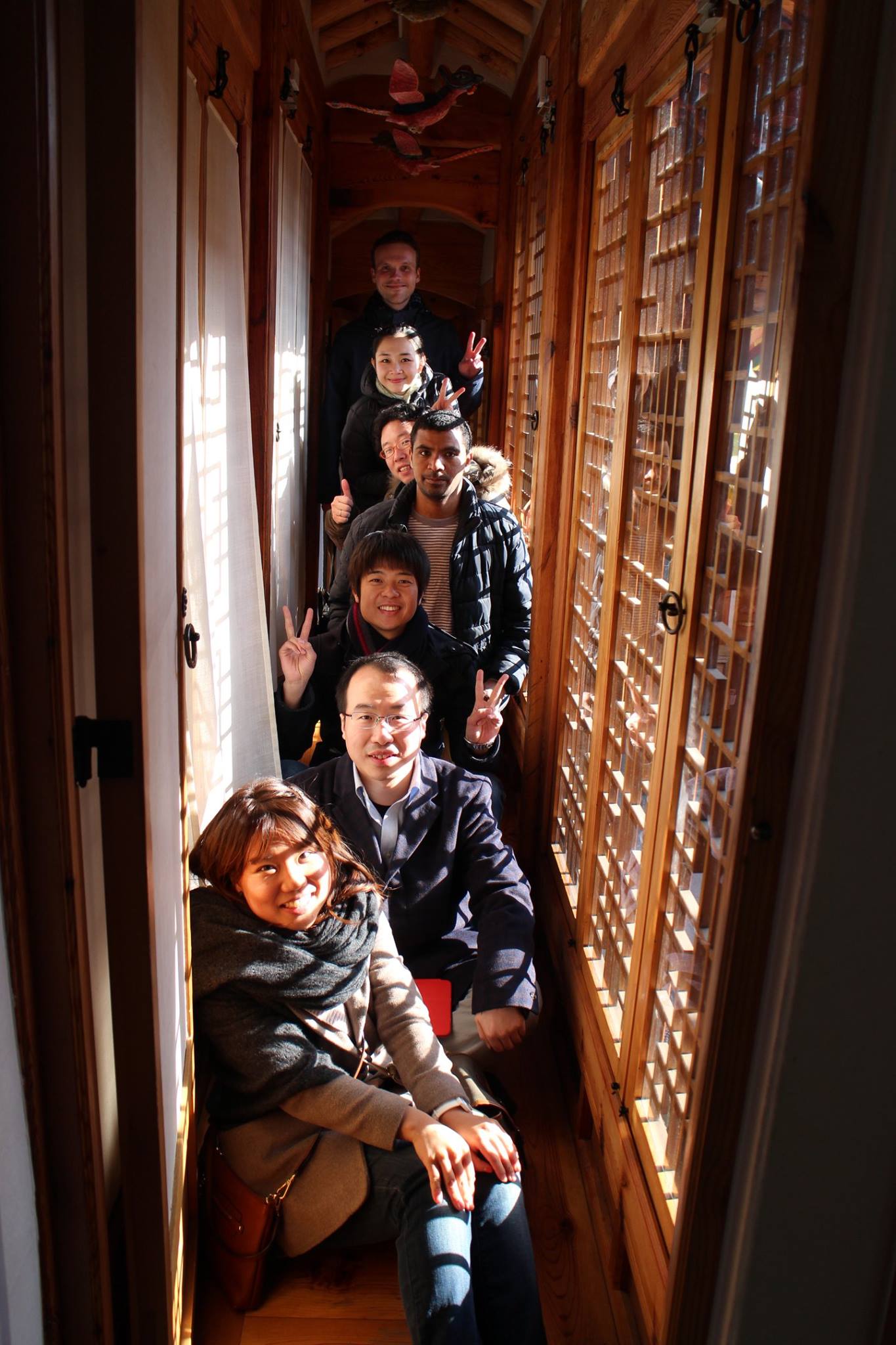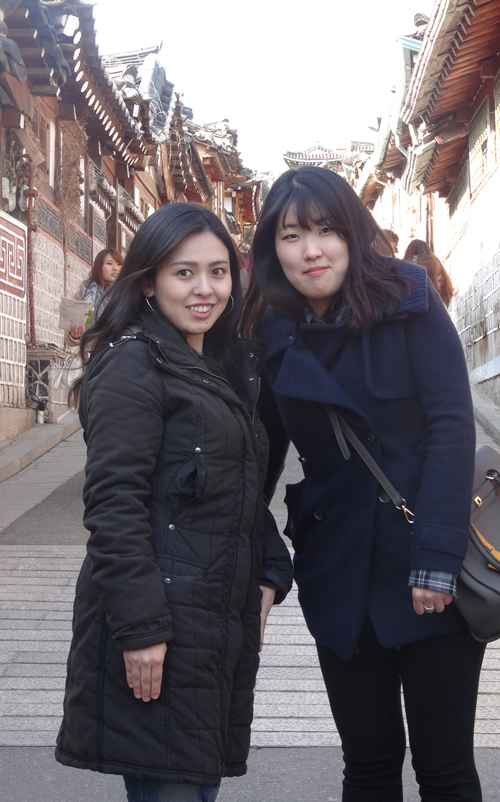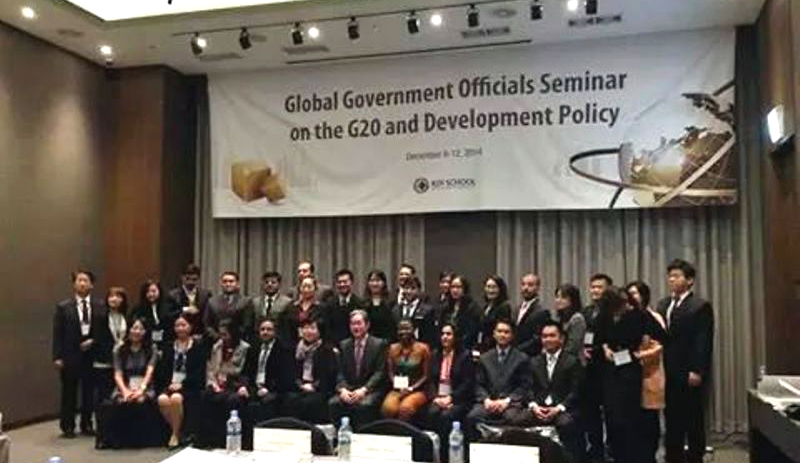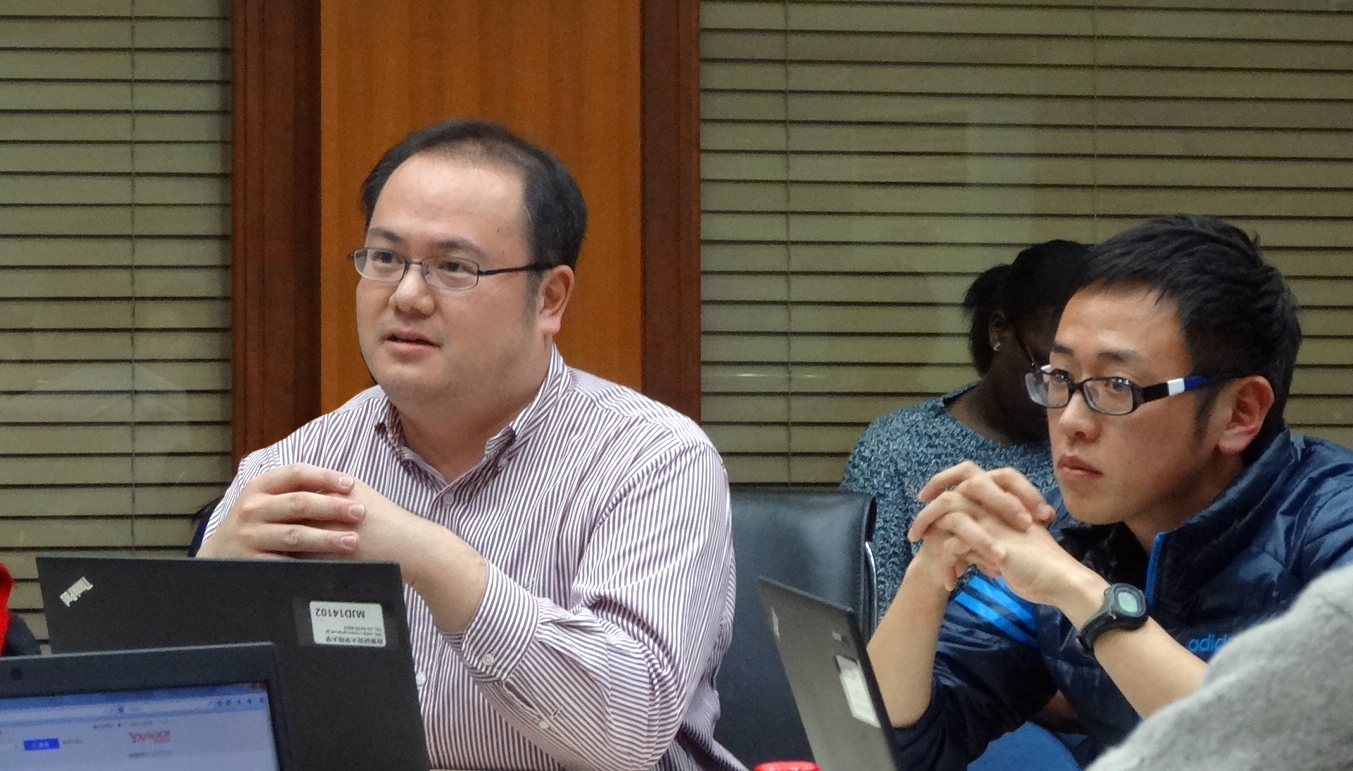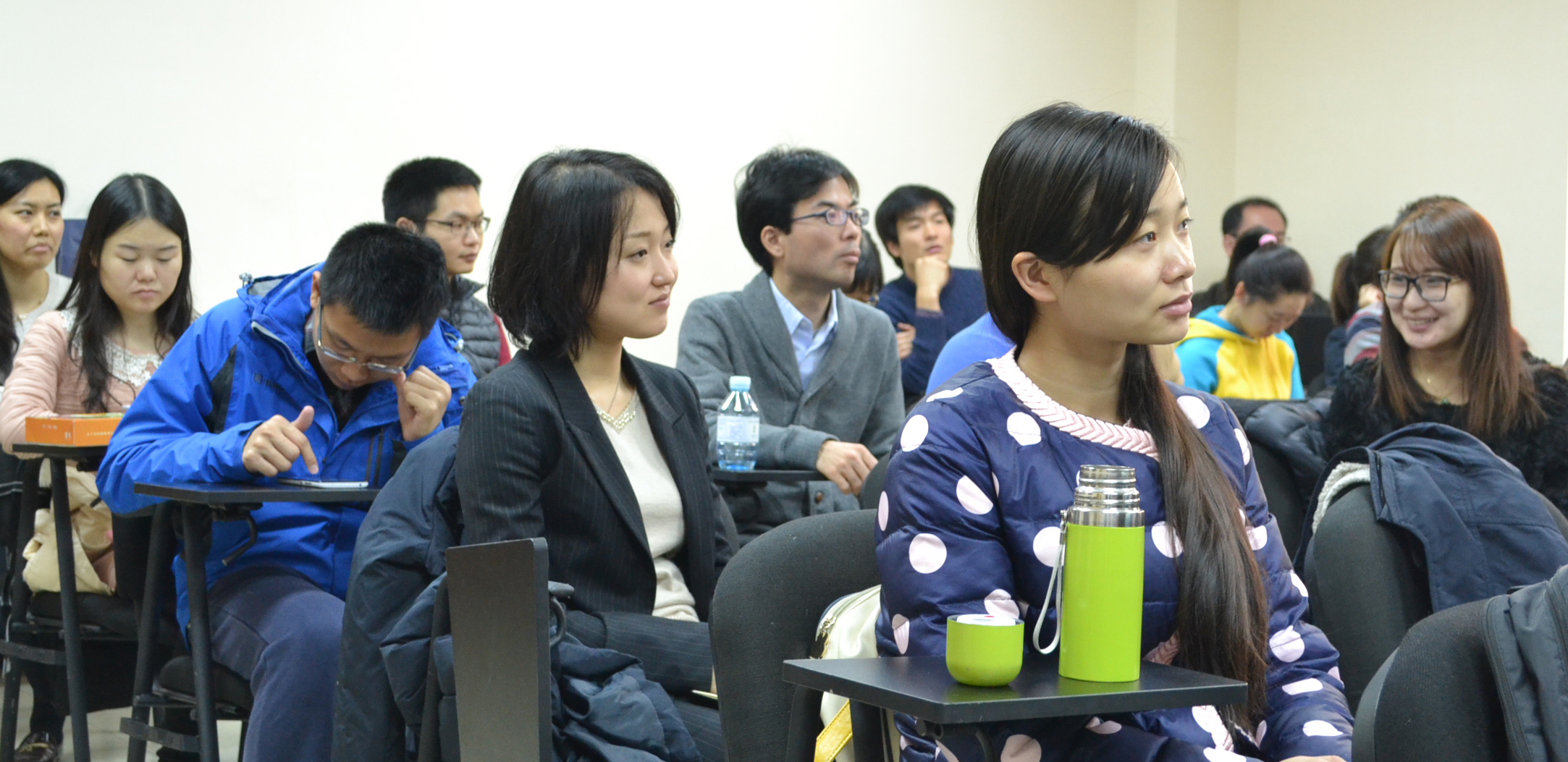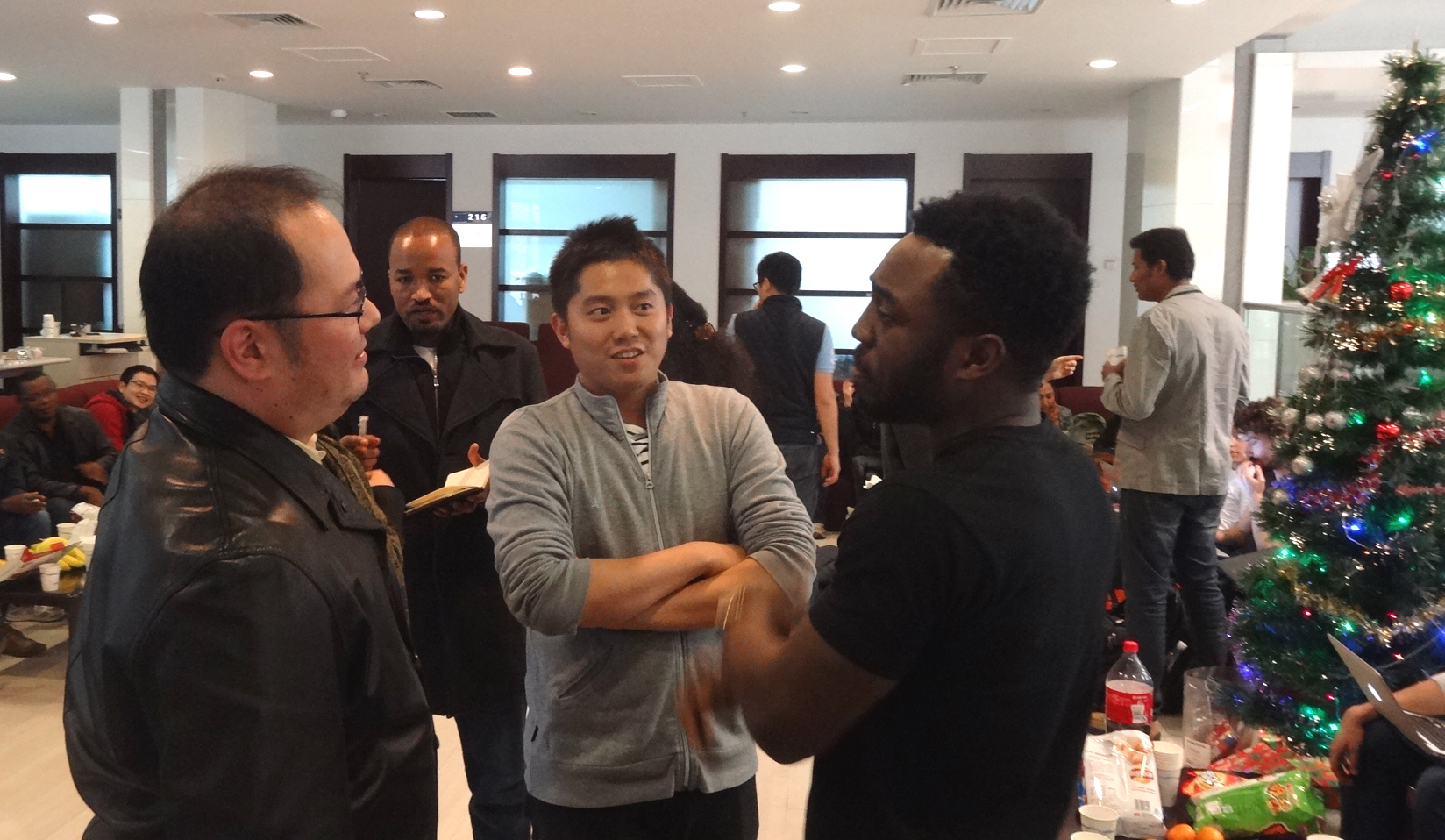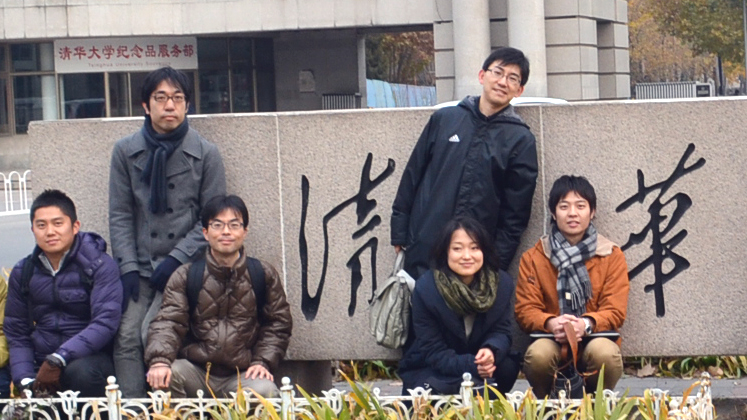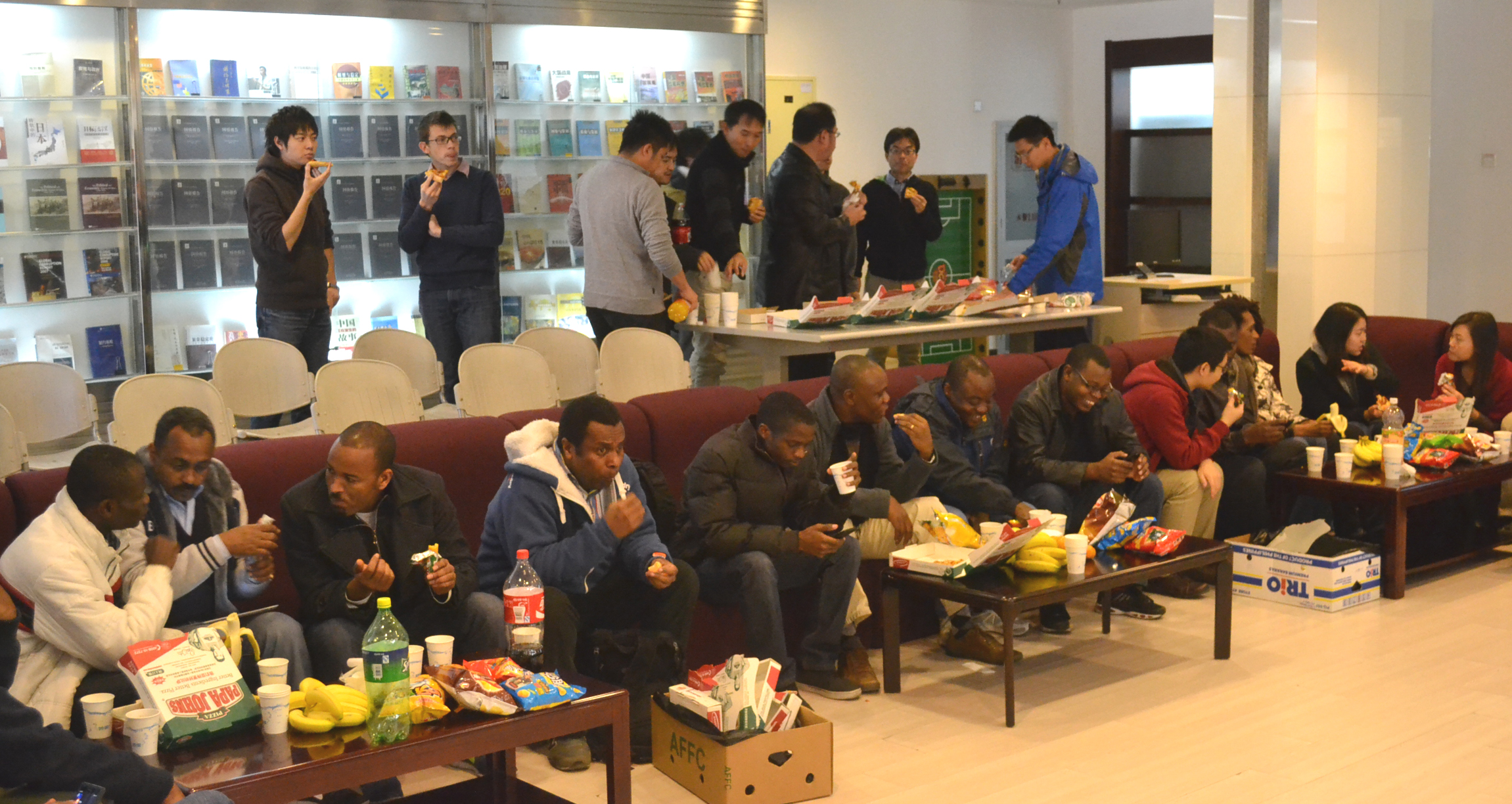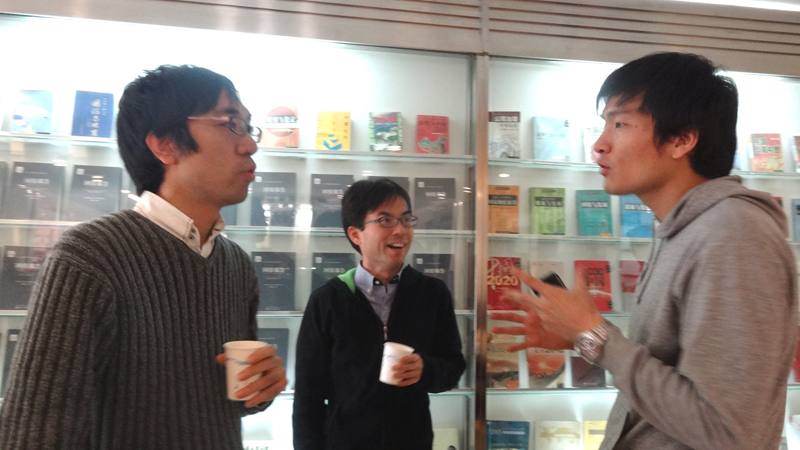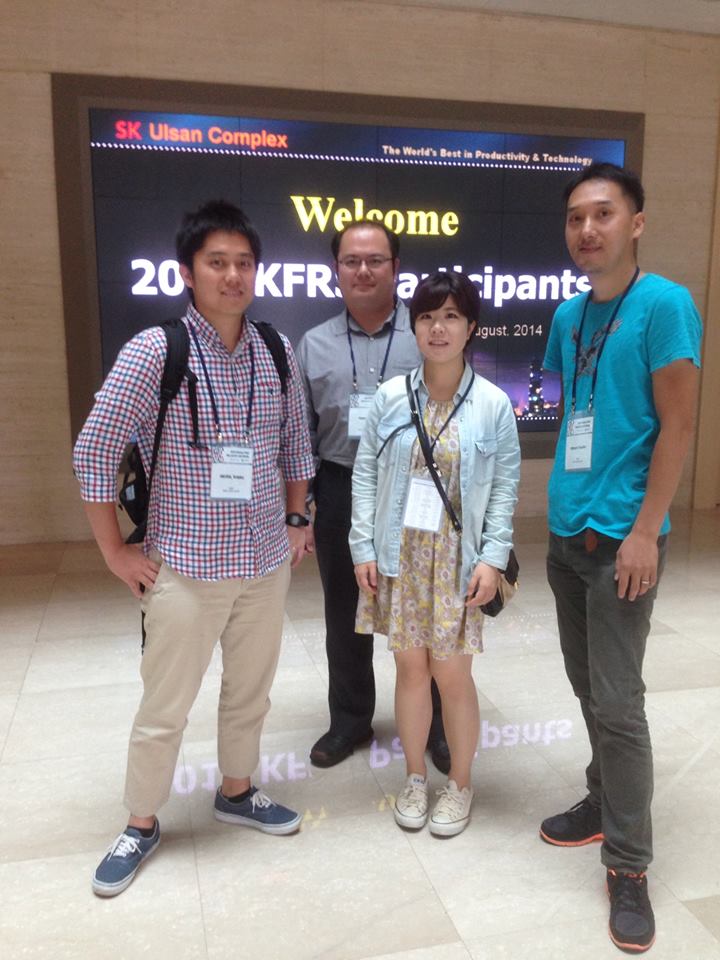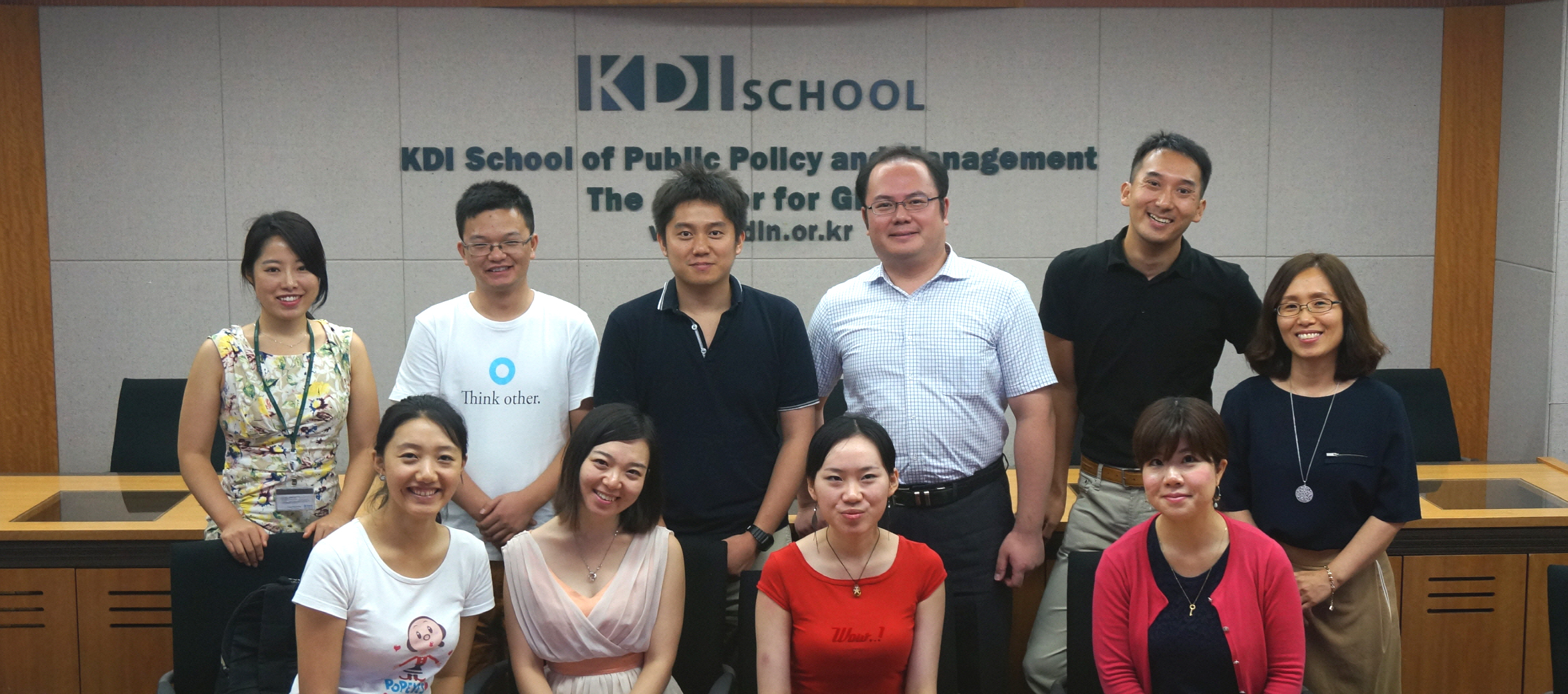Brand-new KDIS and Another Culture in Korea
Jeffrey ORDANIEL (Philippines) / Security and International Studies Program
Participated in 2014 KDIS Short-term Study Trip (Mar. 10-12, 2015)
The KDI School Study Trip arranged by GRIPS was a good opportunity for me because of various reasons. First, I am an alumnus of KDI School. I got my Master of Public Policy Degree from KDIS in 2013, before I entered GRIPS for my PhD. While I was with KDI School from 2011 to 2013, the school campus was still located in Hoegi district, Northeast Seoul. This field trip provided me a chance to see for myself the progress that KDIS has been undergoing, especially that it has already moved to Sejong, South Korea’s new administrative city. Though I did not meet my former professors, I got to reminisce my time with KDIS.
The KDIS library in Sejong is open from 7am to 12am, which is perfect for hardworking students, and even for those who simply prefer to work on their research at night. Overall, it was a memorable trip. It was too short to appreciate Korea more. Nevertheless, it provided all the participants with a good opportunity to see our school’s sister institution and enjoy another culture.
Rediscovering Korea for my GRIPS Friends
Jieun YOU (South Korea) / One-year Public Policy Program
Participated in 2014 KDIS Short-term Study Trip (Mar. 10-12, 2015)
For me, as a student of GRIPS and an alumnus of KDIS, it was very new and interesting experience. In the Ph.D. seminar, indeed I learned much from students who actively discussed the logic and methodology in their research, but I was really impressed by their insights of the research and its policy implication. It was helpful for me to observe the research interest of foreign students who are studying in Korea and Japan. I was really glad to show other students both traditional and modern culture in one day. Even though it was too short to grab the whole picture, I believe they got better understanding about Korea and Korean people than the time they even had no interest in the country. The most impressive moment in Seoul tour was they showed their curiosity and eagerness to learn about Korea.
Next day, we headed to Seoul to show the very essence of Korean culture and life though time was limited. We went to Gyeongbok palace, the most famous and Korean traditional place, and we was even lucky to see the guard exchange ceremony before we leave the place. Introducing the history and culture to foreign friends always makes me proud of my country while making me study more about them. After Gyeongbok palace, we went to Meyongdong, we had a spicy chicken quisine, called “Jjimdak”, and all of us enjoyed it. After that we looked around the place and enjoyed shopping. In my opinion, it was good to show them the daily life of Korean people in my generation. In Bukchon Hanok village, we freely traveled and looked around traditional form of housings. Since this place is my favorite one in Seoul, I also enjoyed the trip there.
A wonderful opportunity to learn about issues that we have not encountered in our professional career
Minako TAKASAKI, GRIPS (JAPAN)
Fumie HARA, GRIPS (JAPAN)
Participated in 2014 Global Government Officials Seminar on G20 and Development Policy (Dec. 7-12, 2014)
The participants of the seminar consisted of governmental officials from G20 countries of Japan, India, Korea, China, Brazil, and Indonesia and other non-G20 developing economies which are learning from G20 actions and future policies. In the first part of the seminar, Korean university professors delivered lectures which helped us identify the urgent policy agenda. Various topics tackled in the 2014 G20 Annual Meeting in Australia were covered, such as employment, social security, gender equality, and environmental issues as well as international aid for developing countries. The aims and directions of the debate at the G20 2015 Annual Meeting in Turkey were also introduced. The seminar gave us an updated birds-eye view of the global policy makers.
In addition, the program provided the participants with a field trip to see the advanced social systems such as Seoul Metropolis transportation system and household disposal system. In SAMSUNG Innovation Museum, participants enjoyed learning from the illustrative history of the development in audio-visual, information and communication technologies. Participants from developing countries expressed their enthusiasm for implementing Korean state-of-the-art technology in their home countries.
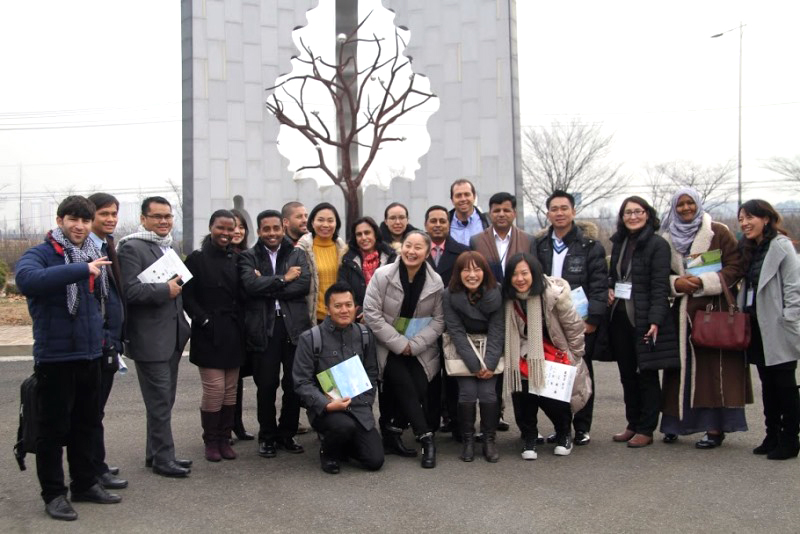
Through the well-organized seminar and the field trip, we have benefited from knowledge covering a wide variety of academic disciplines and from the wonderful interchange with people from different countries, generation and backgrounds. It was a truly valuable opportunity for us to learn about issues that we had not encountered in our professional career. We feel truly fascinated with gratitude to take part in this G20 global seminar.
The importance and necessity of mutual understanding and cooperation
Yohei ETO, GRIPS (Japan)
Participated in Short-term Study Trip at Tsinghua University SPPM (Nov. 24-27, 2014)
We were very excited to see with our own eyes and experience the scale, history and functions of Tsinghua University during the campus tour. Especially impressive were the historical buildings such as the library and the old main gate which are the symbols of the origin and long tradition of Tsinghua as the educational institution. While the promotion presentation given by our colleague and the passionate endorsement from GRIPS CAMPUS Asia alumni fascinated SPPM students, they also made us recognize the core value of GRIPS programs. The promotion events followed by the conversation time developed into a reunion with those SPPM and KDI School students who studied at GRIPS. It was the moment that our friendship deepened further and the tri-partite relationship strengthened further.
On the last day, the Thanksgiving lunch party was a great opportunity to expand our network with international students from very diverse cultural and professional backgrounds. Having talked with them, I came to realize that those international students were extremely eager to study the China’s policy management and its lessons, which are essential for sustained stable growth of China.
This Short-term Study Trip gave me an opportunity to recognize the importance and necessity of mutual understanding and cooperation at both the regional and the global level to realize viable society with harmony and peace. In this respect, the exchange opportunities provided by the Campus Asia Program will certainly help and motivate current and future leaders in various fields to broaden their vision and to establish a strong bond of human network which will bridge the countries in this region. Having participated in several programs including this visit, I strongly recommend current and future GRIPS students to actively participate in Campus Asia exchange programs and events.
Really different cultures and different lives
Tatsuya TSURUI, GRIPS (Japan)
Participated in Short-term Study Trip at Tsinghua University SPPM (Nov. 24-27, 2014)
It is a great privilege for me to join the short-term study trip to SPPM of Tsinghua University as a local government official and GRIPS student. This being my first visit China, I was greatly inspired through experiencing the local culture interchange and vibrant college life. Although we were in China, we were exposed to more English than Chinese and I was impressed by the excellent English communication skills of the faculty members and students, which helped in improving our English.
The campus life style was very different from Japan. It is fascinating to find that the large-area campus not only consists of education related facilities but also various life functions such as groceries, supermarket, or even recreation area with fancy music hall. Accommodation of students, supporting staff and faculties are also located inside the campus. Thus, the Tsinghua campus is in itself a self-sufficient economy. The historical buildings, which have been in existence since the University was founded in 1905, were in excellent harmony with the other facilities of modern architecture.
In the short-term study trip, we attended 3 courses with topics of French economy, Chinese traditional virtues and Chinese economic development. The contents of all three were very rich and insightful. Moreover, the vibrant discussion among students and the lecturers contributed to deepening our understanding. Seeing a band of enthusiastic students was a cultural shock to me because such active dialogue is not often seen in GRIPS domestic program classrooms. The communication with the SPPM international students, who are originally government officials at home, has also given me more knowledge of differences in life style and social culture.
I learned during this Short-term Study Trip that going beyond mere sight-seeing and experiencing real communication with the people actually living there are the keys to further understand the culture and the ways of thinking of the locals and are, most of all, the keys to deepen the relationship between Japan and China. Although the 4 days might be relatively short to see all about China, it will be treasured as my priceless memory that should be carried on even when I resume my job next year. I would also like to express my deepest gratitude for both schools, the supporting staff, other participating students and my employer for letting me experience such a meaningful trip.
An “open mind” will be essential
Isao Okabe, GRIPS (Japan) /
Participated in Summer Program at Tsinghua University SPPM (August, 2014)
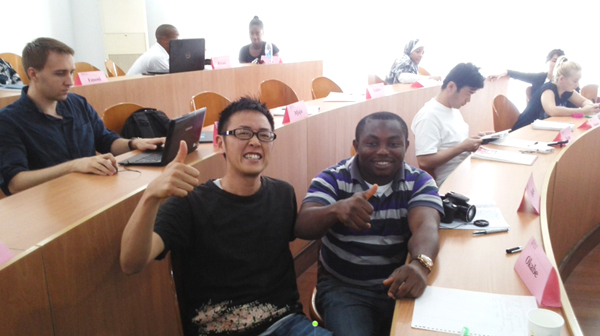 This is the very first time for me to visit China, and I found it is very different from what I have learnt, a positive side! We were assigned a tutor for our life orientation. The tutor’s English is so good that I had no chance to learn much Chinese. But since the majority students are non-Chinese, I utilize this occasion for improve my English. I am impressed by the warm hospitality in the campus, on the street as well as the Jiangxie of our field trip destination, especially when people in China know the history of the company that I am working in.
This is the very first time for me to visit China, and I found it is very different from what I have learnt, a positive side! We were assigned a tutor for our life orientation. The tutor’s English is so good that I had no chance to learn much Chinese. But since the majority students are non-Chinese, I utilize this occasion for improve my English. I am impressed by the warm hospitality in the campus, on the street as well as the Jiangxie of our field trip destination, especially when people in China know the history of the company that I am working in.
The course in the summer program serves a superior platform for the interchange of culture and knowledge among different countries from the globe, which is a totally new experience to me. Also, I have witness that how policy and its implementation are interpreted from many dimensions and debates. This process has really expanded my vision.
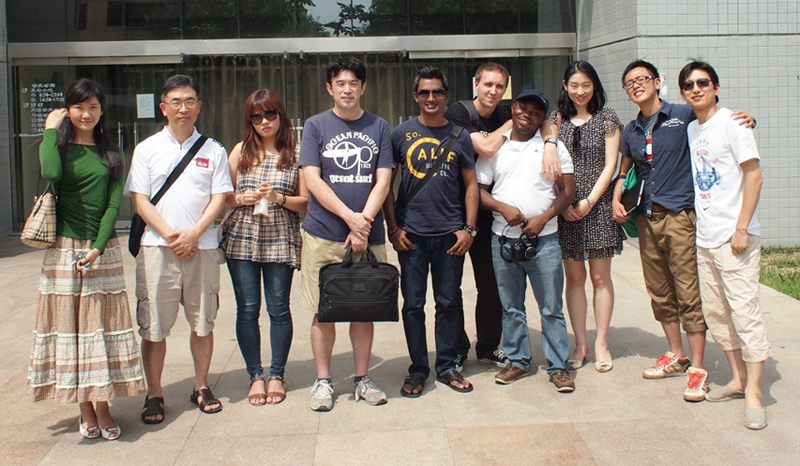 To sum up, I must admit that through CAMPSU Asia, the one-month adventure in in Tsinghua is truly a wonderful gift to me that I want to treasure for years and years to come. I express my deepest gratitude to CAMPUS Asia program, and strongly recommend students in GRIPS to take part in any event that interests you. If there is anything that you wonder about what to prepare, I would, advise without reservation, an “open mind” will be essential.
To sum up, I must admit that through CAMPSU Asia, the one-month adventure in in Tsinghua is truly a wonderful gift to me that I want to treasure for years and years to come. I express my deepest gratitude to CAMPUS Asia program, and strongly recommend students in GRIPS to take part in any event that interests you. If there is anything that you wonder about what to prepare, I would, advise without reservation, an “open mind” will be essential.
Fascinating experiences in KDIS
Yusuke Kimura, GRIPS (Japan) /
Participated in Summer Program at KDIS (August, 2014)
The courses in the KDIS summer program were fascinating. The courses on African and Latin American economic development have greatly inspired my interest in these areas and broadened my global perspective. In addition, the basic Korean course not only enabled me to understand the language but also the cultural customs.
If I had not participated in the CAMPUS Asia program, I would not have been able to obtain such marvelous memories in KDIS as an international student. To be honest, studying abroad is a lot more interesting than being surrounded by international students at GRIPS. I am grateful to have been granted such a precious opportunity to study abroad.
In GRIPS, almost all Japanese students belong to a company or a local government. Because of this life experience, they have a wide range of perspectives and opinions about society and the world. However, in Japan, the target for study abroad programs is usually the younger generation such as those in their 20s. But I believe that more mature students such as those at GRIPS can have better experiences than the younger generation. I think that you should take part in the KDIS summer program if you get a chance.
Short-term study trip at Tsinghua University
Kazuki Matsumoto, GRIPS (Japan) /
Participated in Short-term Training Course at Tsinghua University (28 Oct – 01 Nov, 2013)
During my 4 days stay at Tsinghua university, I had an opportunity to take four lectures taught in English.
In “Strategic Management of Public Organization” class, we had a roll playing discussion about policy of disaster management and prevention. My roll was a trade union and I proposed a plan to confirm alternative roots to supply material when emergency. “China’s Social Policy” was a class about aging issues and pension system in China. Two students had presentations about how to improve pension system. In “Urbanization and Social Development” class, we learned about rural to urban migration and housing problems caused by rapid urbanization. My impression was this kind of problems are too serious to be solved now and what important is to consider various factors from physical, psychological and institutional viewpoints.

Between classes, I enjoyed communicating with Chinese students. Some of them had attended Campus Asia Program at GRIPS so we could easily talk and had a party together. Hoi, a master student at Tsinghua University, explained us about the campus, history, academic structure, life in Beijing and so on.
What impressed me the most was that the classes started at 8 o’clock in the morning and the last class finished at 10 o’clock at night at Tsinghua. I felt Chinese students study much harder than Japanese students and got so much power and stimulation from them.
As one of the first Campus Asia students at grips
Ken Hyunjoong Kim, KDI School (Korea) /
Double Degree Program Exchange Student at GRIPS (Oct. 2012 – Sep. 2013)
The one-year Master’s program was effective for learning the whole concepts of economic knowledge from the basic theory to the complicated econometrics model. The curriculum which was focused on each concentration such as economic policy, international relations, etc, really helped develop specific knowledge for the Master’s degree level. While the work load can be slightly demanding with the tough class schedule, the course level and organization were adjustable for each student. Although it was great to have all the wonderful lectures from most school courses, it would be nice to have discussion-oriented and case study classes as well.
As one of the first Campus Asia students, I am very grateful to join GRIPS and to have the experience of Tokyo life. For the future CAMPUS Asia students, I would like to suggest to use your time and opportunities in Japan to your advantage as much as possible during your academic year.
A Great Opportunity to Learn about Japan
Xiya Liu, SPPM, Tsinghua University (China) /
Participated in Fornight at GRIPS 2013 (8-22, August, 2013)
As participants of the 2013 CAMPUS Asia Fortnight, my schoolmates Cui Liang, Wenhui Yang, Jiawei Zhang, Yongfang Cao and I spent 2 weeks in Tokyo and left with treasurable memory.
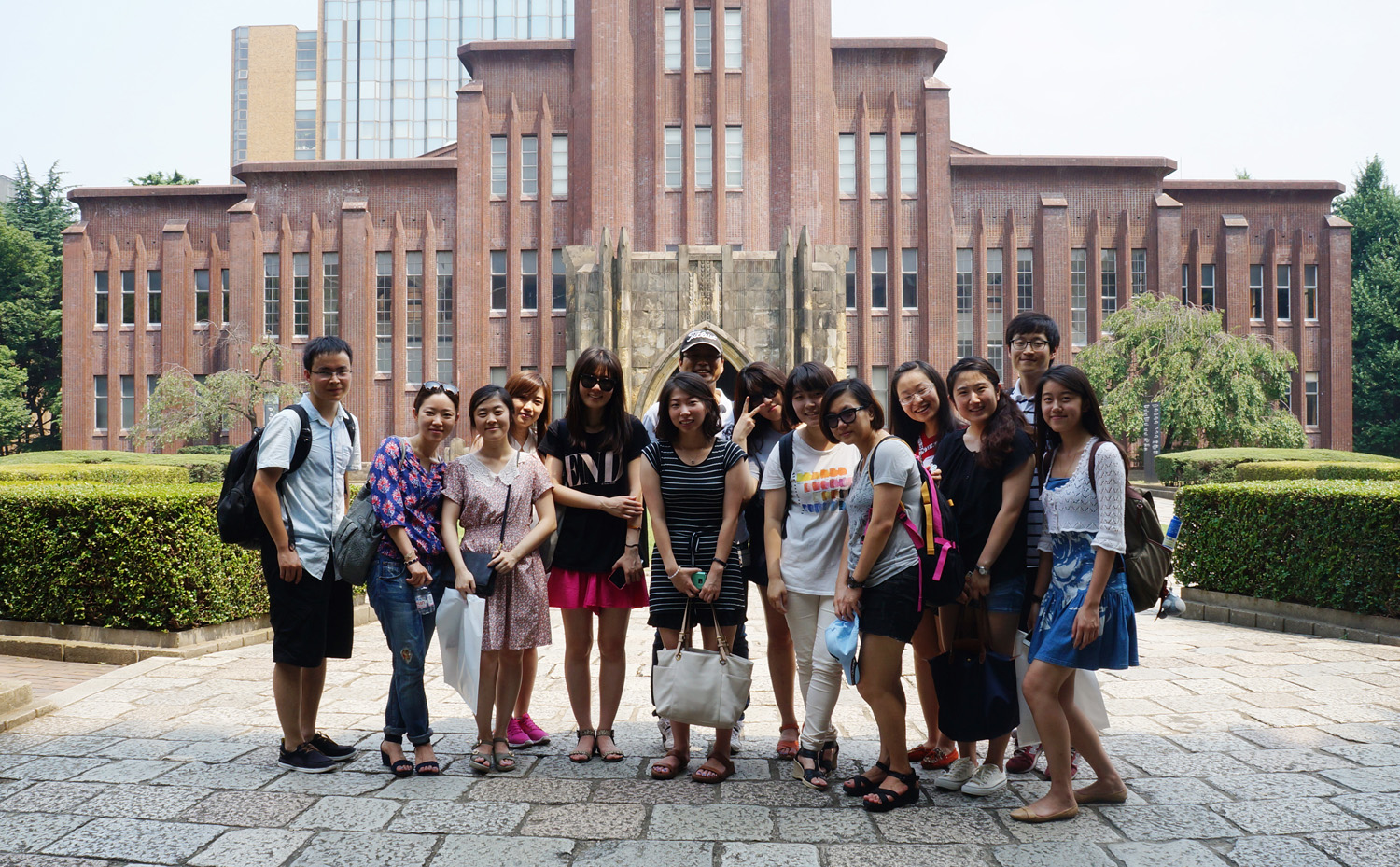 I guess most of Chinese are curious about Japan, because we are so close geographically but seem far from each other mentally, even behaviorally. Personally I’ve also been interested in Japan, I have watched dozens of cartoon books back in my junior time and always loved the idea of CUTE in terms of Japanese girls. But when it comes to ECONOMIC dispute or POLITICs affairs, Japan and China always have the tension, which disturbs me. Thus, with that curiosity, my schoolmates and I start to explore Japan.
I guess most of Chinese are curious about Japan, because we are so close geographically but seem far from each other mentally, even behaviorally. Personally I’ve also been interested in Japan, I have watched dozens of cartoon books back in my junior time and always loved the idea of CUTE in terms of Japanese girls. But when it comes to ECONOMIC dispute or POLITICs affairs, Japan and China always have the tension, which disturbs me. Thus, with that curiosity, my schoolmates and I start to explore Japan.
FDI course was interesting, especially when we discussed policies and situations taken place in different countries, this offered us a great opportunity to understand what other countries’ people are thinking, even when they come from students. Then the lectures and seminars we took also inspired us a lot. I still remember one lecture on TPP and politics, it gave us a view that affects our understanding of geopolitics. Most importantly, personally, I had made a lot of friends during this program, we cook together, learn together, travel around together (even once we almost lost 2 of us because it was such a big team to keep with). I had a great time with them and sincerely value the time we spent together. As I wrote down these, I just remembered there was a saying by some wise men, which is “the most important thing isn’t what you are doing, it’s who you are spending time with”. And I guess this would fully explain why I value this memorable fortnight.
East Asia’s Top Economics Students Get-together at GRIPS
Kyungbae Kim, KDI School (Korea) /
Participated in Fornight at GRIPS 2013 (8-22, August, 2013)
I joined 2013 CAMPUS Asia Fortnight program and had great memories. As Asia becomes a new engine for world economic growth, it was meaningful event for students from major economies of Asia gather and learn from each other.
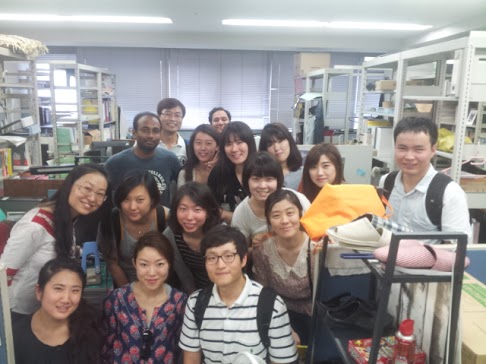 The most unforgettable memory is, of course, the ‘FDI’ class. We could learn not only FDI theory itself but also FDI history and experience of Japan. Another event I must mention is the field trip to the bank of Japan. They even gave us a lecture about central banking. Other than main program, we could experience various aspect of Tokyo and Japan. I took adventures over famous streets and historical sites after class with Korean and Chinese colleges.
The most unforgettable memory is, of course, the ‘FDI’ class. We could learn not only FDI theory itself but also FDI history and experience of Japan. Another event I must mention is the field trip to the bank of Japan. They even gave us a lecture about central banking. Other than main program, we could experience various aspect of Tokyo and Japan. I took adventures over famous streets and historical sites after class with Korean and Chinese colleges.
One thing I regret is that we couldn’t have Japanese students in the program. I wish Japanese students join the next CAMPUS ASIA Fortnight program. If I add one more, I would like to give big hand to the supporting team for their all efforts. I hope many other students have chances to join this program and get benefits.








